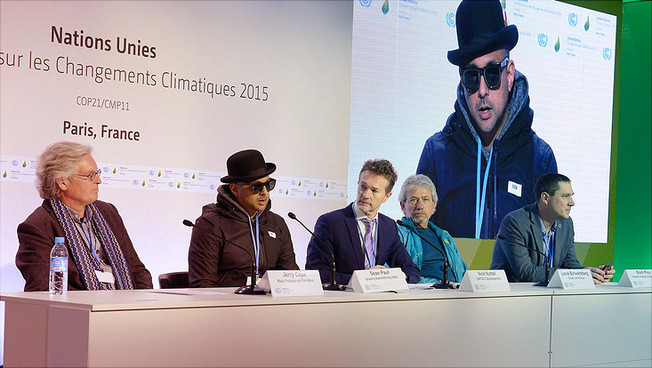10 October 2017
The 2015 Paris Climate Conference: For Germans, the intensive media coverage had a calming, not a mobilizing effect

Photo: Hajue Staudt/WikiCommons
The 21st UN Climate Change Conference (COP 21) took place in Paris in late 2015, and received massive media coverage worldwide. Nearly 70 percent of German citizens heard about the conference on television, yet the average level of awareness for climate-change-related problems essentially remained unchanged. In general, those surveyed claimed they didn’t intend to make their behavior climate-friendlier after the summit – and one in four Germans never heard anything about the conference.
Prof. Michael Brüggemann, Dr. Imke Hoppe and their team explored how effectively the topic of climate change reached German citizens through the media. To do so, they conducted the first representative, three-stage survey: before, during and after the conference, a total of 1121 people were presented with questions on their knowledge of and attitudes on climate change, so as to gauge the effects of the media coverage.
Though some Germans learned more about the goals of the conference (before 28 percent knew about the goals, after 36), the majority gained no fundamental insights into climate policy. The general level of confidence that the global community would manage to get climate change under control rose from 25 to 30 percent. At the same time, the level of support for Germany assuming a leading role in climate protection dropped from 61 to 56 percent. At the end of the day, the percentage of those surveyed who were prepared to do more for climate protection – e.g. through political engagement, by choosing climate-friendlier groceries, or switching to greener transportation options – didn’t rise. “Essentially, after the conference, Germans were more reassured than shaken up,” says communications researcher Imke Hoppe.
Moreover, the team of researchers was surprised by the fact that, despite the immense media attention, so little information about the summit actually reached the populace. At the time, it had to compete with other major events, like the terrorist attack on a concert hall in Paris, and the assaults and violence at Cologne’s railway station on New Year’s Eve. “Other issues like the refugee crisis dominated the public debate; apparently, climate change couldn’t compete,” says Michael Brüggemann.
An accompanying study provides additional insights into how the media can approach the topic of climate change. “Explaining the fundamentals of climate policy in clear, easy-to-understand language, and doing so time and time again, is something that people respond well to,” explains Hoppe. “But the assumption that ‘the more press coverage, the better’ clearly doesn’t always hold up.”
